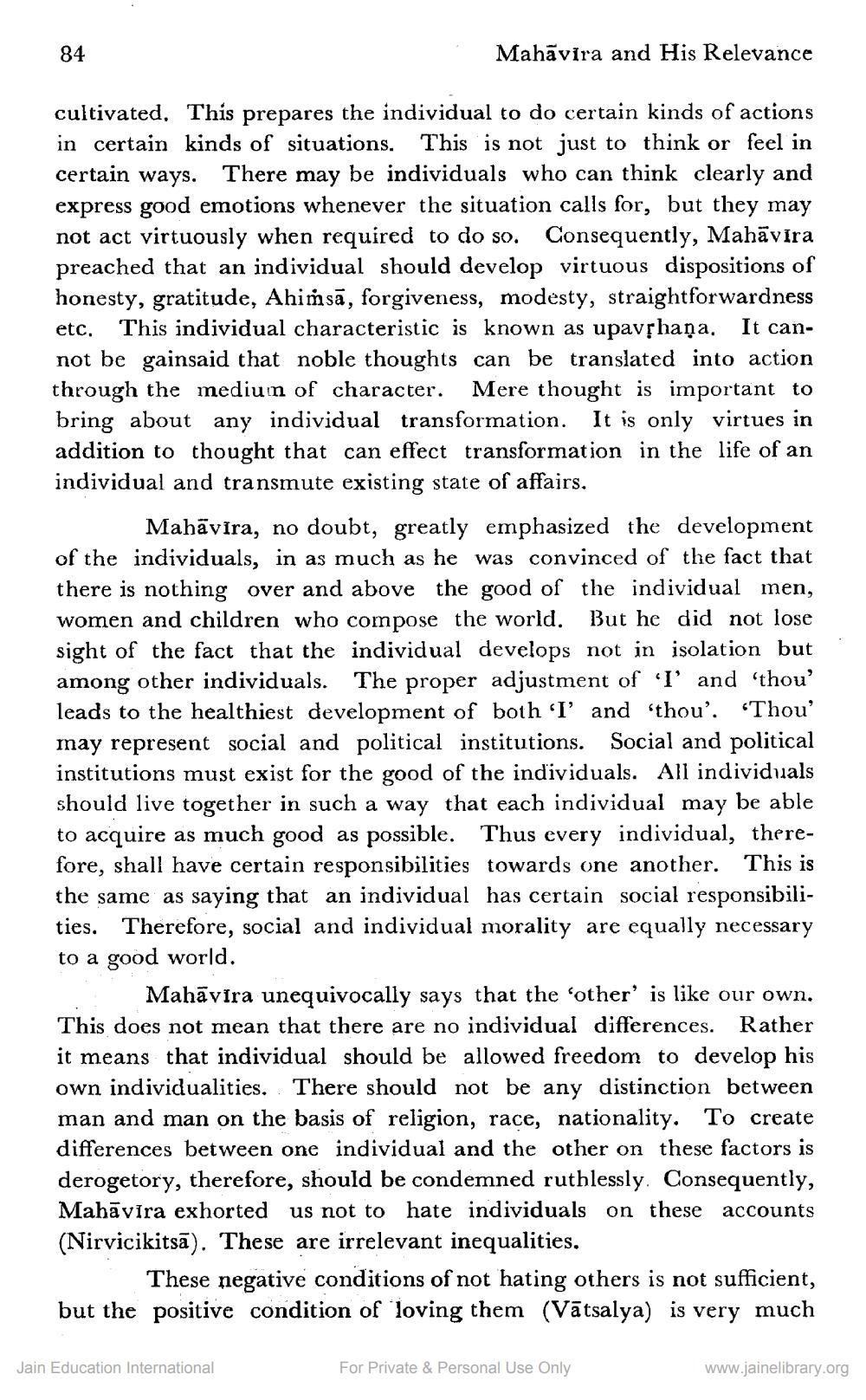________________
84
Mahavira and His Relevance
cultivated. This prepares the individual to do certain kinds of actions in certain kinds of situations. This is not just to think or feel in certain ways. There may be individuals who can think clearly and express good emotions whenever the situation calls for, but they may not act virtuously when required to do so. Consequently, Mahāvira preached that an individual should develop virtuous dispositions of honesty, gratitude, Ahimsā, forgiveness, modesty, straightforwardness etc. This individual characteristic is known as upavshaņa. It cannot be gainsaid that noble thoughts can be translated into action through the mediumn of character. Mere thought is important to bring about any individual transformation. It is only virtues in addition to thought that can effect transformation in the life of an individual and transmute existing state of affairs.
Mahāvīra, no doubt, greatly emphasized the development of the individuals, in as much as he was convinced of the fact that there is nothing over and above the good of the individual men, women and children who compose the world. But he did not lose sight of the fact that the individual develops not in isolation but among other individuals. The proper adjustment of 'I' and 'thou' leads to the healthiest development of both 'I' and thou'. Thou? may represent social and political institutions. Social and political institutions must exist for the good of the individuals. All individuals should live together in such a way that each individual may be able to acquire as much good as possible. Thus every individual, therefore, shall have certain responsibilities towards one another. This is the same as saying that an individual has certain social responsibilities. Therefore, social and individual morality are equally necessary to a good world.
Mahāvīra unequivocally says that the 'other' is like our own. This does not mean that there are no individual differences. Rather it means that individual should be allowed freedom to develop his own individualities. There should not be any distinction between man and man on the basis of religion, race, nationality. To create differences between one individual and the other on these factors is derogetory, therefore, should be condemned ruthlessly. Consequently, Mahāvīra exhorted us not to hate individuals on these accounts (Nirvicikitsā). These are irrelevant inequalities.
These negative conditions of not hating others is not sufficient, but the positive condition of loving them (Vātsalya) is very much
Jain Education International
For Private & Personal Use Only
www.jainelibrary.org




